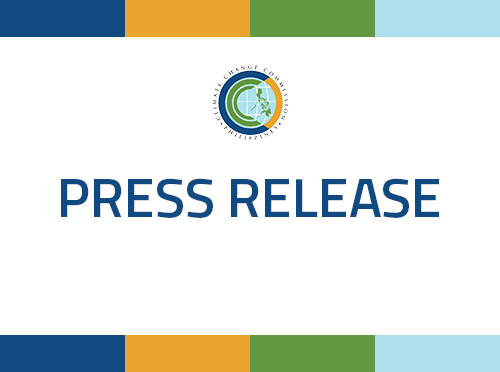
December 11, 2018 Tuesday

Katowice, Poland 11 December 2018 – Climate Change Commission (CCC) Secretary Emmanuel M. De Guzman welcomed the release of the Adaptation Gap Report 2018, launched by the United Nations Environment Programme (UNEP) on December 7 at the climate change summit here, which highlighted Philippine policies and measures that enable climate adaptation in the country.
“We thank the report’s citation on our adaptation efforts in the Philippines, and we take this as further encouragement that we are on the right track to saving more lives and livelihoods and building further resilience within our communities, which is what enabling adaptation really means for a climate-vulnerable developing country like ours,” said De Guzman, also , head of the Philippine delegation to the 24th Conference of Parties (COP24) of the United Nations Framework Convention on Climate Change (UNFCCC).
He shared that the report, which examines the gaps in taking stock and assessing progress on adaptation (expressed through laws and policies, adaptive capacity, and finance), described the Philippines with a “comprehensive adaptation legislation,” starting with the Climate Change Act of 2009, which established the CCC.
The report also cited the creation of the Cabinet Cluster on Climate Change Adaptation, Mitigation, and Disaster Risk Reduction; and the formulation of the 2010 National Framework Strategy on Climate Change, leading to the 2011 National Climate Change Action Plan (NCCAP), which provided a roadmap for climate action in seven thematic priority areas, with the ultimate goal of building the adaptive capacities of women and men in their communities and increase the resilience of vulnerable sectors and natural ecosystems to climate change.
De Guzman added that the report acknowledges the government’s efforts of rolling out science-based climate and disaster risk and vulnerability assessment processes to ensure that adaptation and disaster risk reduction are mainstreamed and integrated into the country’s plans and programs at all levels.
The Secretary noted that beyond creating the enabling environment, the CCC is also intensifying its efforts in building the capacity of local government units, transitioning sectors towards a green economy, and facilitating efficient access to international climate finance to support climate action within the country.
“Through a whole-of-nation approach, the Philippines is constantly exploring new ways, guided by science and the practical knowledge of our communities, to find solutions towards ensuring that our people can truly be able to survive and thrive,” De Guzman concluded.
Please click here to download the UNEP The Adaptation Gap Report 2018 .